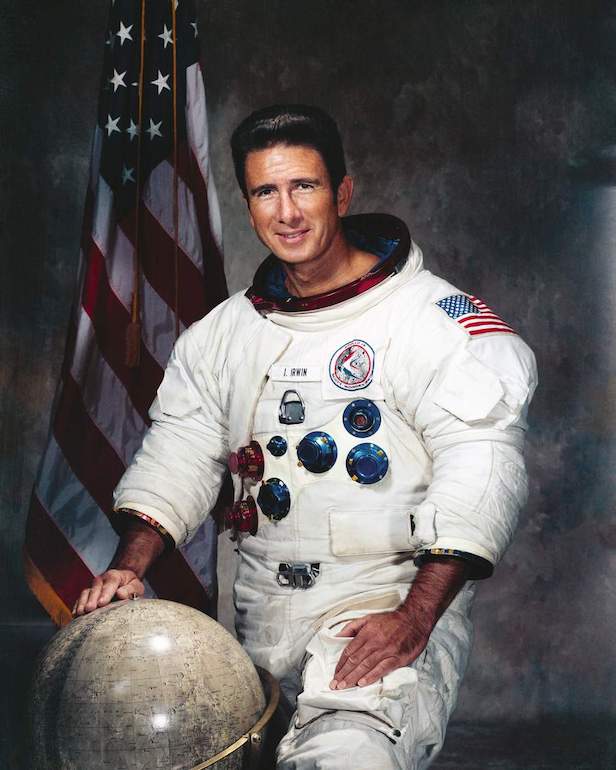Heroes of Space: James Irwin
The deeply religious astronaut who found inspiration during his time on the Moon

James Irwin’s irregular heart rhythms were first noted during his Apollo mission. Image credit: NASA
To date, just 12 people have ever walked on the Moon. James Irwin was one of them, landing on the lunar surface alongside David Scott on 31 July 1971 in order to embark on the three-day Apollo 15 mission. It was the fourth Moon landing and Irwin was number eight to walk on the Moon, but it was the realisation of a long-held dream for the then 41-year-old pilot.
Born on 17 March 1930, Irwin had grown up wanting to go to the Moon. He studied naval science, graduating from the United States Naval Academy in 1951 and while his mother had wanted him to become a preacher, his sights were set skywards for a different reason. As such, he became an Air Force officer. This led him to aeronautical engineering and instrumentation engineering at the University of Michigan.
In the late 1950s, he became a test pilot but it very nearly ended his career. In 1961 while teaching a student to fly on a training mission, his plane crashed, causing Irwin severe injuries. As well as suffering compound fractures and amnesia, he was close to losing a leg yet he recovered more than sufficiently to be selected as one of 19 astronauts by NASA in April 1966.
A couple of years later, he was assigned as crew commander of Lunar Module LTA8. He supported the crew of Apollo 10 and he was a backup Lunar Module Pilot for Apollo 12. Apollo 15 was his crowning glory, though. It was the first mission to visit and explore the two-kilometres (1.2-miles) wide Hadley Rille canyon and the 4.5-kilometres (2.7-miles) tall Apennine Mountains. The Lunar Module was on the surface for a then record 66 hours and 54 minutes.
Irwin and Scott collected an astonishing 77 kilograms (170 pounds) of lunar rock samples as they carried out inspections of the nature and origin of the area, spending 18 hours and 35 minutes on the surface during the course of three extravehicular activities. Since the first lunar rover accompanied them, they were able to travel further from the Lunar Module than previous missions could and their endeavours led to the discovery of the Genesis Rock, which was found to have formed in the early stages of the Solar System.
Deeply religious, Irwin found his time on the Moon to be very moving. After the first day of exploration, he said the landscape reminded him of his favourite Biblical passage from Psalms. In reciting this – “I’ll look unto the hills from whence commeth my help” – he then displayed a good sense of humour, adding: “But, of course, we get quite a bit from Houston, too.” Apollo 15 successfully splashed down in the Pacific Ocean, with Irwin having logged 295 hours and 11 minutes in space.
Apollo 15 was viewed as a very successful mission. It was the first to use a lunar surface navigation device, the first to see a sub-satellite launched in lunar orbit, and it saw the first scientific instrument module bay to be flown to the Moon. Yet it was also Irwin’s first and only time in space. He resigned from NASA and the Air Force in July 1972 and he went on to form a religious organisation called High Flight Foundation in Colorado Springs.
Unfortunately, the following year he was struck by ill health, suffering a heart attack while playing handball. He had another cardiac irregularity in 1986 while running and then fell prey to a fatal heart attack while he was riding his bike on 8 August 1991. He never recovered and he died the same day, becoming the first of the dozen men to walk on the Moon to pass away.
Keep up to date with the latest news in All About Space – available every month for just £4.99. Alternatively you can subscribe here for a fraction of the price!




